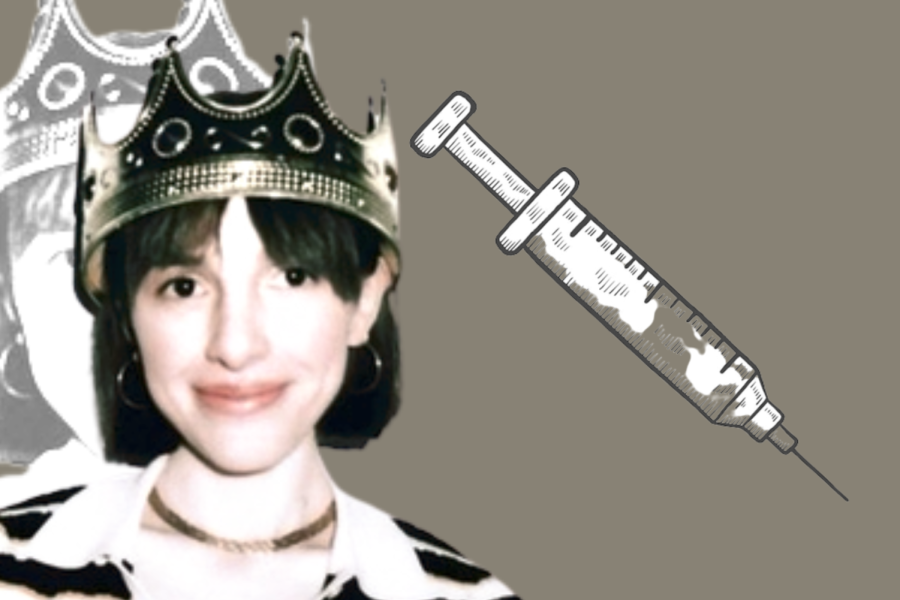Liz Bruenig Lectures on Witnessing Executions: the Tragic Truth of the Death Penalty
March 3, 2023
Last Friday, many parents and students fought the strong winds as they commuted to the Eck Welcome Center on the Notre Dame campus to enjoy junior parent weekend festivities and listen to Pulitzer Prize winning journalist Liz Bruenig speak.
The Eck Center auditorium was practically bursting with energy; all the seats in the room were taken and some parents, faculty, and students even overflowed into the hallway, eager to listen to the wise words of the small woman who stepped up to the microphone.
Liz Bruening, a staff writer at the Atlantic, podcast co-host, and former reporter for the New York Times and Washington Post, opened her hour-long lecture with an apology.
“I have never been to campus before and it’s beautiful,” Bruenig explained, “I was supposed to come last year, but there was an execution scheduled the day before I was to attend, and so it wound up that I had made a commitment to this gentleman to witness his execution. And I couldn’t break that commitment. So I had to break this one. But fortunately, Notre Dame was extremely, extremely generous in rescheduling with me and so I’m here with you this weekend.”
Although it may shock readers, part of Bruenig’s job is to witness the executions of death row prisoners. She interviews many inmates in the days leading up to their executions, and some of them request that she witness their deaths, which she then reports on in an effort to make the public aware of the realities of executions.
Bruenig went on to dismantle common arguments in favor of the death penalty. A major one she addressed was that the death row prisoner, “is not worth living because he himself has become worthless through his homicides and has nothing more to contribute and can only provide anyone in the benefits such as closure.”
She responded to this comment by attesting to the whole of an inmate, rather than a small part of them defined by their crime.
“For any given inmate, there exists a version of them captured in news coverage and police records and court papers, frozen in the era of their wrongdoing. And utterly defined by it. In the era of the Internet, we all universally have access to this version of an inmate,” she said. “One need not oppose capital punishment to observe how this happens. Long term confinement results in a kind of social death. It’s supposed to and so the last documentation of a person’s public life becomes these contemporaneous documents related specifically to their offense and its prosecution.”
Bruenig explained the corrupt and cyclical American legal system. Many death row inmates are not first-time offenders, meaning they have been incarcerated previously, which Bruenig argues can lead them to social troubles. This encourages them to commit more crimes in the future.
Bruenig continued, pointing out another argument that pro-capital punishment believers use.
“American prisons, or perhaps under any intolerable confinement, are said to be so deplorable, that death is actually a humane alternative,” she said.
Bruenig continued: “It always occurs to me when these arguments come up, and none of this needs to remain abstract. These lives are lived by people whose stories can be solicited,” she said. “This is where I can provide some information, just some specifics, to fill out these getting general claims. That way we can judge them better.”
Bruenig later noted that nearly every inmate she met preferred to spend life in prison than die, invalidating the idea that prison is a worse alternative than death.
She also references the “criminal menopause” that death row inmates often experience.
“Burl Kane, the longtime warden of Louisiana’s infamous Angola prison and current commissioner of the Mississippi Department of Corrections describes this phenomenon to criminal menopause. Natural waning of criminal desire with the passage of time thanks to these sometimes decades long gaps between conviction and execution I often meet prisoners on death row long after this change and many important changes have taken place,” she said.“I meet them after their crimes, and these are not the guys who they were when they committed their crimes.”
Flooding the room with emotions, Bruenig shared multiple accounts of her first-hand experiences with death row inmates.
She began with a moving story about Kenneth Smith, a 22 year old father of four who accepted compensation to kill a local minister’s wife. The judge in Kenny’s case used judicial override, overruling the jury’s sentence recommendation, and instead sentenced Kenny to death. Bruenig had crossed paths with him after anticipating a botched execution, considering there were several ones preceding Kenny’s scheduled date.
Regarding her relatively obscure experience of meeting Kenny only two weeks before his scheduled execution, she shared some of the moments she appreciated.
“It is a very strange journey to get to know someone who’s scheduled to die in about two weeks. If you ever had the opportunity, I wouldn’t dissuade you. In fact, in Kenny’s case, there were a number of benefits and getting to know Kenny.”
In addition, Bruenig described getting to know family members of death row prisoners, specifically Kenny’s wife Dee.
“I also came to know his wife, Dee. And in my frequent interviews with them, I repeatedly raised the question of how their marriage had endured despite the intensely anxious and grim conditions they found themselves and learn that they shared a devotion to Christ, and that they had developed the practice of living strictly within the moment together and treating vanishingly small quantities of time as limitless in their emotional potential,” she said.
She also referenced multiple relationships she had built with death row members and their families, often attesting to their resilience and strength.
I approached Bruenig with a reporter from Notre Dame’s student newspaper, the Observer, after the talk to ask some questions. We asked her about the emotional weight of her work, and the responsibility she holds as a journalist.
“These events definitely have to be covered. It’s the only way there’s going to be accountability. It’s a government function unlike any other: executing peacetime citizens,” she said. “And you absolutely have to, have to, you have to have an independent media present. It’s disturbing to me that prisons and government agencies are allowed to select their media witnesses for executions, that seems contrary to the process.”
Bruenig also referenced journalists who cover executions but might not tell the whole story.
“And oftentimes, those are great journalists that get chosen, but oftentimes these are journalists … who don’t print anything more than that the execution happened. So if you want someone who’s really critical, you’re gonna have to go in there and do it yourself. And it’s just one of our obligations in the profession. It is difficult.”
She continued by speaking on the emotional impact that followed one of the executions she witnessed.
“I cried in the shower that night. I mean, I just sat down and cried. But you know, that’s after my obligations.”



